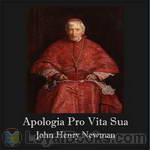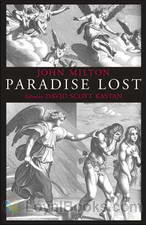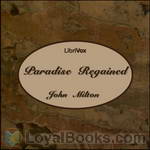|
Books Should Be Free Loyal Books Free Public Domain Audiobooks & eBook Downloads |
|
|
Books Should Be Free Loyal Books Free Public Domain Audiobooks & eBook Downloads |
|
Religion |
|---|
|
Book type:
Sort by:
View by:
|
By: John Edward Acland (1848-1932) | |
|---|---|
 Little Gidding and its inmates in the Time of King Charles I. with an account of the Harmonies
Little Gidding and its inmates in the Time of King Charles I. with an account of the Harmonies
| |
By: John Edward Mercer (1857-1922) | |
|---|---|
 Nature Mysticism
Nature Mysticism
| |
By: John Fiske (1842-1901) | |
|---|---|
 Myths and myth-makers: Old Tales and Superstitions Interpreted by Comparative Mythology
Myths and myth-makers: Old Tales and Superstitions Interpreted by Comparative Mythology
| |
By: John Foxe (1516-1587) | |
|---|---|
 Fox's Book of Martyrs Or A History of the Lives, Sufferings, and Triumphant Deaths of the Primitive Protestant Martyrs
Fox's Book of Martyrs Or A History of the Lives, Sufferings, and Triumphant Deaths of the Primitive Protestant Martyrs
| |
By: John G. (John Greenleaf) Adams (1810-1887) | |
|---|---|
 Hymns for Christian Devotion Especially Adapted to the Universalist Denomination
Hymns for Christian Devotion Especially Adapted to the Universalist Denomination
| |
By: John Gerardus Fagg (1860-1917) | |
|---|---|
 Forty Years in South China The Life of Rev. John Van Nest Talmage, D.D.
Forty Years in South China The Life of Rev. John Van Nest Talmage, D.D.
| |
By: John Gibson Paton (1824-1907) | |
|---|---|
 The Story of John G. Paton Or Thirty Years Among South Sea Cannibals
The Story of John G. Paton Or Thirty Years Among South Sea Cannibals
| |
By: John Gresham Machen (1881-1937) | |
|---|---|
 Literature and History of New Testament Times
Literature and History of New Testament Times
There is a tendency in the modern Church to neglect the study of Bible history. Such neglect will inevitably result in a loss of power. The gospel is a record of something that has happened, and uncertainty about the gospel is fatal weakness. Furthermore the historical study of the apostolic age—that age when divine revelation established the great principles of the Church's life—is the best corrective for a thousand vagaries. Much can be learned from modern pedagogy; but after all what is absolutely fundamental, both for teacher and for student, is an orderly acquaintance with the Bible facts... | |
By: John Haynes Holmes (1879-1964) | |
|---|---|
 Heroes in Peace The 6th William Penn Lecture, May 9, 1920
Heroes in Peace The 6th William Penn Lecture, May 9, 1920
| |
 A Statement: On the Future of This Church
A Statement: On the Future of This Church
| |
By: John Hayward (1781-1869) | |
|---|---|
 The Book of Religions Comprising the Views, Creeds, Sentiments, or Opinions, of All the Principal Religious Sects in the World
The Book of Religions Comprising the Views, Creeds, Sentiments, or Opinions, of All the Principal Religious Sects in the World
| |
By: John Henry Blunt (1823-1884) | |
|---|---|
 A Key to the Knowledge of Church History (Ancient)
A Key to the Knowledge of Church History (Ancient)
| |
By: John Henry Jowett (1864-1923) | |
|---|---|
 My Daily Meditation for the Circling Year
My Daily Meditation for the Circling Year
| |
By: John Henry Newman (1801-1890) | |
|---|---|
 Apologia Pro Vita Sua
Apologia Pro Vita Sua
A religious autobiography of unsurpassed interest, the simple confidential tone of which "revolutionized the popular estimate of its author," establishing the strength and sincerity of the convictions which had led him into the Roman Catholic Church (Wikipedia). "No autobiography in the English language has been more read; to the nineteenth century it bears a relation not less characteristic than Boswell's 'Johnson' to the eighteenth." Rev. Wm. Barry, D.D. | |
 Apologia pro Vita Sua
Apologia pro Vita Sua
| |
 Loss and Gain The Story of a Convert
Loss and Gain The Story of a Convert
| |
 Parochial and Plain Sermons, Vol. VII (of 8)
Parochial and Plain Sermons, Vol. VII (of 8)
| |
 Parochial and Plain Sermons, Vol. VIII (of 8)
Parochial and Plain Sermons, Vol. VIII (of 8)
| |
By: John Howie (1735-1793) | |
|---|---|
 Biographia Scoticana (Scots Worthies) A Brief Historical Account of the Lives, Characters, and Memorable Transactions of the Most Eminent Scots Worthies
Biographia Scoticana (Scots Worthies) A Brief Historical Account of the Lives, Characters, and Memorable Transactions of the Most Eminent Scots Worthies
| |
By: John Jewel (1522-1571) | |
|---|---|
 The Apology of the Church of England
The Apology of the Church of England
| |
By: John Kline (1797-1864) | |
|---|---|
 Life and Labors of Elder John Kline, the Martyr Missionary Collated from his Diary by Benjamin Funk
Life and Labors of Elder John Kline, the Martyr Missionary Collated from his Diary by Benjamin Funk
| |
By: John Knox (1514?-1572) | |
|---|---|
 The Works of John Knox, Vol. 1 (of 6)
The Works of John Knox, Vol. 1 (of 6)
| |
 The Pulpit Of The Reformation, Nos. 1, 2, 3 and 4.
The Pulpit Of The Reformation, Nos. 1, 2, 3 and 4.
| |
By: John L. Alexander | |
|---|---|
 The Boy and the Sunday School A Manual of Principle and Method for the Work of the Sunday School with Teen Age Boys
The Boy and the Sunday School A Manual of Principle and Method for the Work of the Sunday School with Teen Age Boys
| |
By: John Lord (1810-1894) | |
|---|---|
 Beacon Lights of History, Vol 1: The Old Pagan Civilizations
Beacon Lights of History, Vol 1: The Old Pagan Civilizations
The first of 14 volumes, this book discusses ancient civilization looking primarily at religion and philosophy. | |
By: John M. Rodwell (1808-1900) | |
|---|---|
 The Koran (Al-Qur'an)
The Koran (Al-Qur'an)
| |
 The Koran (Al-Qur'an)
The Koran (Al-Qur'an)
| |
By: John Maclean (1851-1928) | |
|---|---|
 William Black The Apostle of Methodism in the Maritime Provinces of Canada
William Black The Apostle of Methodism in the Maritime Provinces of Canada
| |
By: John Mark | |
|---|---|
 Jesus of Nazareth, A Biography
Jesus of Nazareth, A Biography
"Jesus of Nazareth, a Biography, by John Mark," recognizes the author of the second Gospel as that "John, whose surname was Mark" (Acts 15:37), whom Barnabas chose as companion when he sailed for Cyprus on his second missionary journey. In making use of the new title, the plan of the Editor is to present "The Gospel: According to Mark" as it would be printed were it written in the twentieth rather than the first century. (Introduction from Forward, by D. Appleton & Co, Publishers, 1922) | |
By: John Milton (1608-1674) | |
|---|---|
 Paradise Lost
Paradise Lost
Magnificent in its scale and scope, this monumental poem by the blind poet John Milton was the first epic conceived in the English language. It describes an omniscient, all powerful God, the Fall of Man, the Temptation in the Garden of Eden, the disgraced angel who later becomes known as Satan, the Angelic Wars fought by Archangels Michael and Raphael and the Son of God who is the real hero of this saga. The poet John Milton was more than sixty years old when he embarked on this immense work of literary creation... | |
 Paradise Regained
Paradise Regained
Paradise Regained is a poem by the 17th century English poet John Milton, published in 1671. It is connected by name to his earlier and more famous epic poem Paradise Lost, with which it shares similar theological themes. Based on the Gospel of Luke’s version of the Temptation of Christ, Paradise Regained is more thoughtful in writing style, and thrives upon the imagery of Jesus’ perfection in contrast to the shame of Satan. | |
By: John P. Jones (1847-1916) | |
|---|---|
 India's Problem, Krishna or Christ
India's Problem, Krishna or Christ
| |
 India, Its Life and Thought
India, Its Life and Thought
| |
By: John Patrick Crichton-Stuart Bute (1847-1900) | |
|---|---|
 Brendan's Fabulous Voyage A Lecture delivered on January 19, 1893, before the Scottish Society of Literature and Art
Brendan's Fabulous Voyage A Lecture delivered on January 19, 1893, before the Scottish Society of Literature and Art
| |
By: John Percival (1834-1918) | |
|---|---|
 Sermons at Rugby
Sermons at Rugby
| |
By: John Philip Newman (1826-1899) | |
|---|---|
 'America for Americans!' The Typical American, Thanksgiving Sermon
'America for Americans!' The Typical American, Thanksgiving Sermon
| |
By: John R. (John Ross) Macduff (1818-1895) | |
|---|---|
 The Words of Jesus
The Words of Jesus
| |
 The Cities of Refuge: or, The Name of Jesus A Sunday book for the young
The Cities of Refuge: or, The Name of Jesus A Sunday book for the young
| |
 The Faithful Promiser
The Faithful Promiser
| |
 The Mind of Jesus
The Mind of Jesus
| |
 Memories of Bethany
Memories of Bethany
| |
By: John R. MacDuff (1818-1895) | |
|---|---|
 Evening Incense
Evening Incense
This is a small volume of Evening Prayers. Thoughts to think on in the quiet before bedtime; ideas that edify the soul, calm the mind and prepare our bodies and spirits for sleep. Each is not long, but they are edifying and thought provoking. As the author says in the prefact "May He with whom is "the residue of the Spirit," "cause His Angel to fly swiftly" and touch us in the time of our Evening Oblation; and may all that is amiss in thought and word be lost in the fragrant incense-cloud which ascends from the Golden Altar before the Throne!" "And thou shalt make an ALTAR to burn INCENSE upon: "And thou shalt put it ... | |
By: John Ruskin (1819-1900) | |
|---|---|
 Saint Ursula Story of Ursula and Dream of Ursula
Saint Ursula Story of Ursula and Dream of Ursula
| |
By: John Stuart Mill (1806-1873) | |
|---|---|
 Auguste Comte and Positivism
Auguste Comte and Positivism
Part 1 lays out the framework for Positivism as originated in France by Auguste Comte in his Cours de Philosophie Positive. Mill examines the tenets of Comte's movement and alerts us to defects. Part 2 concerns all Comte's writings except the Cours de Philosophie Positive. During Comte's later years he gave up reading newspapers and periodicals to keep his mind pure for higher study. He also became enamored of a certain woman who changed his view of life. Comte turned his philosophy into a religion, with morality the supreme guide. Mill finds that Comte learned to despise science and the intellect, instead substituting his frantic need for the regulation of change. | |
By: John Taylor (1808-1887) | |
|---|---|
 Government of God
Government of God
An outline of the Government of God as held by the Church of Jesus Christ of Latter-day Saints as outlined by John Taylor, third President of the Church. Summary by Wayne Cooke. | |
By: John Tulloch (1823-1886) | |
|---|---|
 Religion and Theology: A Sermon for the Times Preached in the Parish Church of Crathie, fifth September and in the College Church, St Andrews
Religion and Theology: A Sermon for the Times Preached in the Parish Church of Crathie, fifth September and in the College Church, St Andrews
| |
By: John Van Nest Talmage (1819-1892) | |
|---|---|
 History and Ecclesiastical Relations of the Churches of the Presbyterial Order at Amoy, China
History and Ecclesiastical Relations of the Churches of the Presbyterial Order at Amoy, China
| |
By: John William Draper (1811-1882) | |
|---|---|
 History of the Conflict Between Religion and Science
History of the Conflict Between Religion and Science
| |
By: John Wortabet | |
|---|---|
 Arabian Wisdom
Arabian Wisdom
| |
By: John [Translator] Brownlie | |
|---|---|
 Hymns from the Morningland Being Translations, Centos and Suggestions from the Service Books of the Holy Eastern Church
Hymns from the Morningland Being Translations, Centos and Suggestions from the Service Books of the Holy Eastern Church
| |
By: Joseph Augustus Seiss (1823-1904) | |
|---|---|
 Luther and the Reformation: The Life-Springs of Our Liberties
Luther and the Reformation: The Life-Springs of Our Liberties
| |
By: Joseph Barber Lightfoot (1828-1889) | |
|---|---|
 Essays on the work entitled "Supernatural Religion"
Essays on the work entitled "Supernatural Religion"
| |
By: Joseph Barker (1806-1875) | |
|---|---|
 Modern Skepticism: A Journey Through the Land of Doubt and Back Again A Life Story
Modern Skepticism: A Journey Through the Land of Doubt and Back Again A Life Story
| |
By: Joseph Butler (1692-1752) | |
|---|---|
 Some Remains (hitherto unpublished) of Joseph Butler, LL.D.
Some Remains (hitherto unpublished) of Joseph Butler, LL.D.
| |
 Analogy of Religion to the Constitution and Course of Nature
Analogy of Religion to the Constitution and Course of Nature
Joseph Butler's great work is the Analogy, published in 1736, and from that day read and admired by every highly-cultivated mind. He was induced to write by a state of things very remarkable in the history of religion. Debauchery and infidelity were almost universal, not in any one class of society but in all. England had reached the culminating point of irreligion, and the firm re-establishment of Episcopacy had as yet done nothing to mend the nation’s morals. Piety was deemed a mark of ignorance and vulgarity, and multitudes of those who professed it were persecuted to dungeons and death... | |